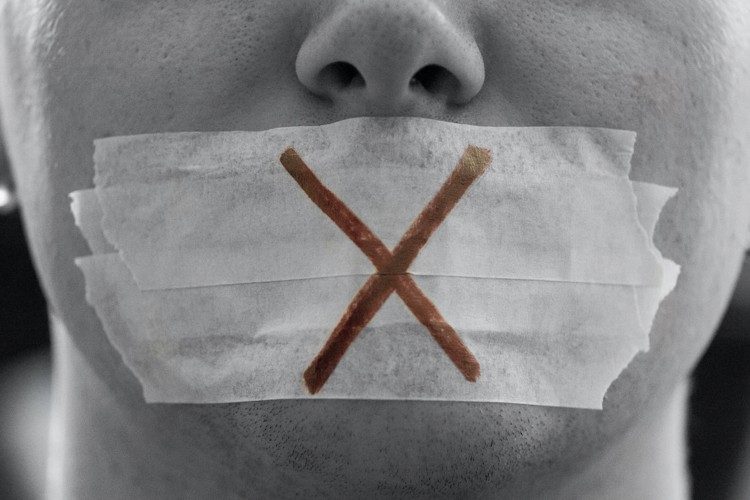
As Democrat presidential nominee Joe Biden continues to ignore mounting evidence that he may not, in fact, have won the election, he continues to show just what type of president he would be if elected. The former vice president has appointed the anti-free speech crusader Richard Stengel to the position of team lead on his transition team’s U.S. Agency for Global Media (USAGM) group.
The USAGM is the government agency responsible for content on the Voice of America, the Middle East Broadcasting Networks and Radio Free Europe/Radio Liberty. The networks all have a legacy of promoting American values in areas where pro-American speech is squelched.
A key component of all of those networks is America’s First Amendment, which recognizes our God given right to free speech. But Stengel is not necessarily a fan of the First Amendment as it is currently written.
An Obama administration veteran, Stengel wrote an op-ed in the Washington Post last October entitled “Why America Needs a Hate Speech Law.” In the piece, Stengel argued that free speech in America should not be unrestricted and that people such as him should decide what type of speech crosses the proverbial line. “All speech is not equal. And where truth cannot drive out lies, we must add new guardrails,” Stengel wrote. “I’m all for protecting ‘thoughts that we hate,’ but not speech that incites hate.”
Stengel argues that in our new information age where conceivably everyone can potentially have a large platform, the First Amendment as written is an archaic relic of the past. “Yes, the First Amendment protects the ‘thought that we hate,’ but it should not protect hateful speech that can cause violence by one group against another. In an age where everyone has a megaphone, that seems like a design flaw,” Stengel charged.
A constitutional scholar sounded the alarm on Stengel’s appointment in a Tuesday article where he warned, “It would be difficult to select a more anti-free speech figure to address government media policy, one has to assume that Biden will continue the onslaught against this core freedom as president.”
Stengel also blamed the First Amendment for the “Russian election hackers” of 2016. Stengel claims that that God-given right “protects bad actors who hide behind it behind it to weaken our society.”
“The Russians understood that our free press and its reflex toward balance and fairness would enable Moscow to slip its destructive ideas into our media ecosystem,” Stengel wrote.
According to Stengel, the Internet allows free speech for people who were never intended to have it — such as foreign entities. The First Amendment in Stengel’s eyes, is merely an outdated remnant from a bygone era. “That’s partly because the intellectual underpinning of the First Amendment was engineered for a simpler era,” Stengel explained.
Particularly heinous in Stengel’s mind is speech against certain racial or religious groups. And that is why he believes we should consider hate speech laws in America — even though he freely admits that hate speech is undefinable — except in the way that he defines it.
“We call them hate speech laws but there’s no agreed-upon of what hate speech actually is. In general, hate speech is speech that attacks and insults people on the basis of race, religion, ethnic origin and sexual orientation,” Stengel wrote.
This is the level of thought that Joe Biden wants in his administration. A person who outright says that there is no “agreed upon” definition of hate speech, who then goes on to define it in his next sentence.
“I think it’s time to consider these [hate speech] statutes,” Stengal concludes. “Speech doesn’t pull the trigger, but does anyone seriously doubt that such hateful speech creates a climate where such acts are more likely?”
What Stengel doesn’t seem to understand is that the First Amendment was not “engineered for a simpler era.” It was specifically designed for a time such as today when tyrants both political and technological would seek to become arbiters of truth. Only by being able to speak freely and engage in debate — the so-called marketplace of ideas — can abhorrent ideas be actively challenged by free thinkers, pushed aside, and relegated to the fringes of thought where they belong.


